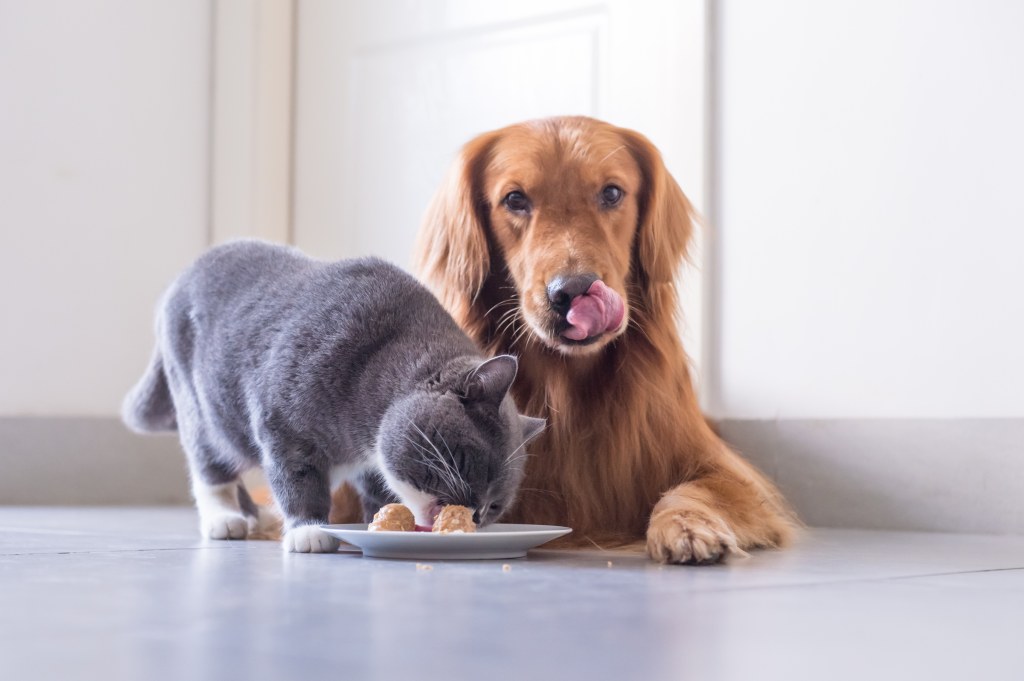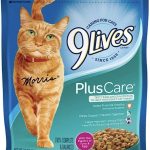My Cat Refuses Prescription Food: Discover The Solution Today!
Cat Won’t Eat Prescription Food: Understanding the Challenge and Finding Solutions
Introduction
Welcome, Cat Lovers! As many of you know, dealing with a cat that refuses to eat prescription food can be quite a challenge. Whether it’s due to picky eating habits, health concerns, or a combination of factors, finding a solution can be frustrating. In this article, we will explore the reasons behind this behavior, discuss potential solutions, and provide helpful tips to ensure your feline friend receives the nutrition they need.
2 Picture Gallery: My Cat Refuses Prescription Food: Discover The Solution Today!


What Causes a Cat to Reject Prescription Food?
🐾 A cat’s refusal to eat prescription food can stem from various reasons. One possible cause is the taste and texture of the food. Some cats might find the flavors unappealing or struggle with the texture, leading them to reject it altogether. Additionally, underlying health issues, such as dental problems or gastrointestinal discomfort, can make eating certain types of food difficult for cats. Lastly, cats may simply have a strong preference for their usual diet and resist any changes.
Who Can Be Affected by this Challenge?

Image Source: hillspet.com
🐾 Any cat that requires prescription food can potentially face this challenge. This includes cats with specific medical conditions, such as kidney disease, diabetes, or allergies. It is crucial to address this issue promptly, as the prescribed food is designed to meet the unique nutritional needs of cats with these conditions.
When Should You Be Concerned?
🐾 If your cat consistently refuses to eat prescription food for more than a few days, it is essential to consult with your veterinarian. Cats have unique nutritional requirements, and prolonged rejection of prescription food can lead to malnutrition and further health complications.
Where Can You Find Alternatives?

Image Source: tufts.edu
🐾 When faced with a cat that won’t eat prescription food, exploring alternative options becomes necessary. Speak with your veterinarian about other brands or flavors that might be more appealing to your cat. In some cases, a homemade diet or a mix of prescription and regular cat food may be recommended. However, it is crucial to consult with a professional to ensure your cat’s nutritional needs are met.
Why Is It Important to Address This Issue?
🐾 Addressing your cat’s refusal to eat prescription food is vital for their overall health and well-being. Prescription food is specifically formulated to manage certain medical conditions, and failing to provide it can have detrimental effects on your cat’s health. By addressing this challenge, you can ensure that your feline companion receives the necessary nutrition to maintain their quality of life.
How Can You Encourage Your Cat to Eat Prescription Food?
🐾 Encouraging a cat to eat prescription food may require some trial and error. Here are a few tips to help make the transition smoother:
1. Gradual Transition: Mix a small amount of prescription food with your cat’s regular food, gradually increasing the ratio over time.
2. Warm the Food: Warming the food slightly can enhance its aroma, making it more enticing for your cat.
3. Experiment with Texture: Some cats prefer wet food over dry food, while others have the opposite preference. Try different textures to see what your cat prefers.
4. Offer Variety: Providing a variety of flavors within the prescribed brand can help find the one that appeals to your cat.
5. Seek Veterinary Guidance: Your veterinarian can provide valuable insights and recommend appetite stimulants or alternative feeding methods if necessary.
Advantages and Disadvantages of Cat Refusing Prescription Food
🐾 Like any situation, there are both advantages and disadvantages to a cat refusing prescription food:
Advantages:
1. Highlight the need for a tailored diet: Your cat’s refusal can indicate that their specific dietary needs are not being met by the prescribed food.
2. Encourages exploration of alternative options: This challenge can lead you to discover other suitable food choices or potentially tailor a homemade diet to your cat’s needs.
3. Promotes a closer bond with your cat: Through the process of finding a solution, you can deepen your bond and understanding of your feline companion’s preferences and health requirements.
Disadvantages:
1. Nutritional deficiencies: If your cat consistently refuses prescription food, they may not be receiving the necessary nutrients to support their health condition.
2. Increased stress: Constantly searching for alternative solutions and dealing with a cat that won’t eat can be stressful for both you and your feline friend.
3. Limited food choices: If your cat rejects prescription food, it may limit the options available to manage their medical condition effectively.
Frequently Asked Questions
1. Q: Can I mix my cat’s medication with their prescription food?
A: It is best to consult with your veterinarian before mixing medication with your cat’s food. Some medications may interact negatively with certain ingredients or alter the food’s taste, making it even less appealing to your cat.
2. Q: Are there any natural remedies to stimulate my cat’s appetite?
A: While there are various natural remedies suggested to stimulate a cat’s appetite, such as adding bone broth or specific herbs to their food, it is crucial to consult with your veterinarian before trying any of these options. They can guide you on safe and effective methods to encourage your cat to eat.
3. Q: How long should I wait before seeking veterinary advice if my cat won’t eat prescription food?
A: If your cat refuses prescription food for more than a couple of days, it is advisable to consult with your veterinarian. They can assess your cat’s health and provide appropriate guidance to address the issue.
4. Q: Can I mix my cat’s regular food with prescription food to entice them to eat?
A: Mixing your cat’s regular food with prescription food can be attempted, but it is important to consult with your veterinarian first. They can guide you on the appropriate ratios and ensure that your cat’s specific dietary needs are being met.
5. Q: Is it possible to train a cat to eat prescription food?
A: While it is challenging to train a cat to eat specific food, gradual introduction and patience can help in most cases. If your cat consistently refuses, consult with your veterinarian for alternative solutions.
Conclusion
In conclusion, dealing with a cat that won’t eat prescription food can be a frustrating challenge. However, with patience, guidance from your veterinarian, and a willingness to explore alternative options, you can find a solution that ensures your feline companion receives the nutrition they need to maintain their health. Remember, every cat is unique, so finding the right approach may take time. By addressing this issue, you are taking an important step in providing the best care for your beloved feline friend.
Final Remarks
🐾 It is crucial to remember that the information provided in this article is for informational purposes only and should not replace professional veterinary advice. If your cat refuses to eat prescription food, consult with your veterinarian to address the underlying causes and find the most suitable solution for your cat’s needs. Every cat is unique, and what works for one may not work for another. Your veterinarian is the best resource to guide you through this challenge and ensure your cat’s health and well-being.
This post topic: Cats



